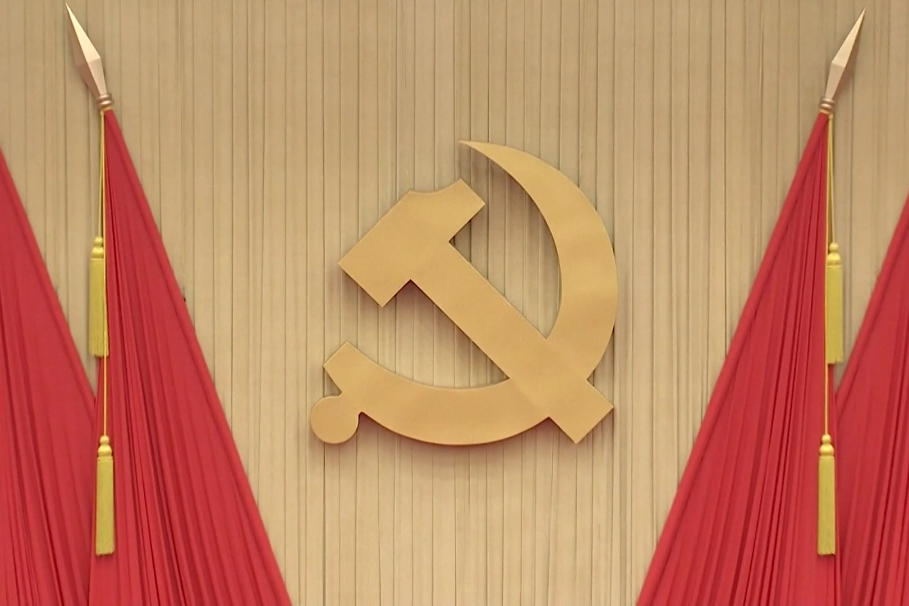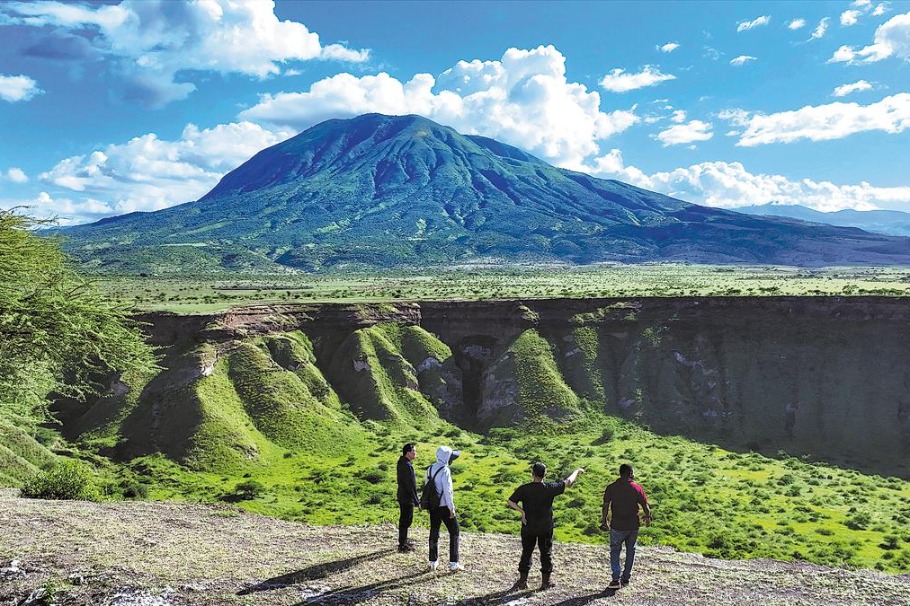Double standards equally risky on nuclear issues
By Mario Cavolo | chinadaily.com.cn | Updated: 2023-09-06 14:54

Like many across the world, I also had thought the issue of the nuclear-contaminated water from the damaged Fukushima nuclear power plant had been settled. But when I recently read in a Channel News Asia report that Japanese government officials had said the radioactive water had to be discharged into the sea to avoid accidental leaks and create space for storing more wastewater that was accumulating in the destroyed nuclear reactor of the Fukushima plant, I realized something was seriously wrong.
That the Japanese government is concerned about any accidental leaks means the radioactive water is obviously is not safe. And if that is the case, why is Japan dumping it into the sea?
The Japanese government then told the world that the radioactive water would be treated before being discharged into the sea, and there is nothing to worry about because the treatment will remove all the nuclides from the water. But this assurance came from Tokyo Electric Power Company, which owns the damaged Fukushima plant, and has lied about the radioactive water and the nuclear reactors countless times before.
Then I learned that Japan had invited the International Atomic Energy Agency to study the situation. This should have made me believe the decision of the Japanese government and TEPCO to dump the radioactive water into the sea was based on foolproof scientific studies. But the IAEA's core statement on the Fukushima crisis explicitly states that it does not endorse or recommend the discharge plan, which raises two very important questions.
First, why do recent headlines in The New York Times suggest it is treating Japan with kid gloves? Why is the West's approach to Japan very different from the way it dealt with Russia in 1993 when the latter faced an international uproar after announcing it was planning to release nuclear-contaminated water into the sea? Russia was forced to abandon its plan, heeding the call of the international community.
And second, why doesn't Japan treat the radioactive water from the Fukushima facility and use it domestically it if it is safe to drink after treatment, as TEPCO claimed? Wouldn't that be better than Japan dumping the radioactive water into the sea and contaminating the marine environment and ecology and threatening the health of people around the world? If China did the same, the United States and its allies would have launched a scathing attack.
To put it simply, Japan is being irresponsible, because it wants to save money and make the rest of the world, especially its neighboring countries, to deal with the threat the nuclear-contaminated water will pose.
Some people have been trying to confuse people by focusing only on the existence of tritium in the radioactive water, claiming the cooling water China releases from its nuclear plants has the same radioactive element. This comparison is misplaced, because nuclear plants not only in China but also in the rest of the world, including those in the US, France and many other countries, release cooling water with the same contents into the sea. Cooling water is not the same as the nuclear-contaminated water from damaged nuclear power plants such as Chernobyl and Fukushima.
Japan's discharge plan will cost about $100 billion in lost seafood exports because most of the people around the world have said they will no longer consume seafood from Japan because of health concerns, but also because they want to punish Japan for releasing the radioactive water into the sea without consulting other countries.
Also, if you accuse only China of badgering Japan by banning the import of Japanese agricultural products, seafood in particular, be aware that over the past year, US imports of Japanese seafood have plummeted. So while US politicians are suspiciously silent, US consumers are not.
The US military, back in 2011, filed a case seeking compensation to cover the cost of the catastrophic damage servicemen on the USS Reagan had suffered due to radiation from the Fukushima plant. According to a complaint lawyers filed in court, "At all times relevant herein, the Japanese government (TEPCO) kept representing that there was no danger of radiation contamination to the USS Reagan (CVN-76) and/or its crew, that 'everything is under control,' 'all is OK, you can trust us,' and there is 'no immediate danger' or threat to human life, all the while lying through their teeth about the reactor meltdowns at FNPP."
In fact, in October 2012, TEPCO acknowledged that it had played down the safety risks at the Fukushima facility out of fear that they would lead to the shutdown of the plant.
Worse, reports revealed that before the 2011 earthquake catastrophe Japan's nuclear regulators lobbed accusations of mass negligence against TEPCO, and TEPCO had failed to inspect 33 pieces of equipment at the Fukushima-Daiichi plant.
Something is certainly not right here. I suggest Japanese officials make a decision that doesn't harm any party and shows the international community the respect it warrants.
The author is a non-resident senior fellow at the Center for China and Globalization. The views don't necessarily reflect those of China Daily.
The opinions expressed here are those of the writer and do not necessarily represent the views of China Daily and China Daily website.
If you have a specific expertise, or would like to share your thought about our stories, then send us your writings at opinion@chinadaily.com.cn, and comment@chinadaily.com.cn.
























